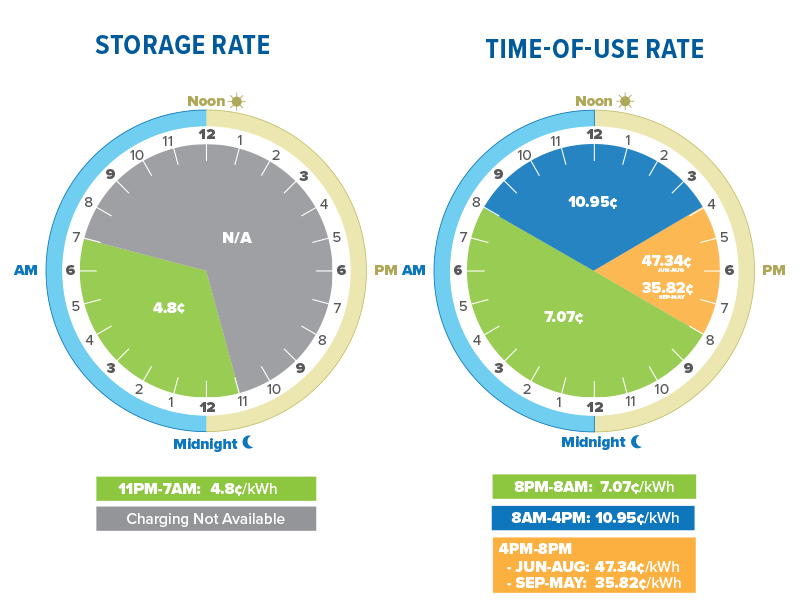For someone who has always driven a gasoline-powered vehicle, it can be difficult to think of making the switch to an all-electric car. But with how affordable electic vehicles (EVs) are becoming, along with the convenience of “fueling up” at home and the added bonus of knowing you’re positively impacting the environment—it could be a more practical option than you first think.
Cost Savings
While EVs are less expensive to own and operate than a traditional gas-powered vehicle over the long-term, they can cost more upfront to purchase. That’s where incentives come into play. For example, the federal government offers consumers a tax credit of up to $7,500 to put toward the purchase of a new EV, which can significantly lower the price tag.
Once you own an EV, the fuel cost savings start adding up. Electricity prices are far more stable than gas prices, and EVs are three times more energy efficient than gasoline-powered vehicles. This means that a typical EV can travel about 43 miles on $1 worth of electricity. While total savings depend on current gas prices and your driving habits, someone who drives 12,000 miles per year could save $1,300.
Convenience
You already charge all your personal electronics at home – why not your vehicle, too? LREC offers special low-cost rates for EVs with our ChargeWise program. There are two rate options: a storage rate, which allows charging only during certain hours, and a time-of-use rate, which has different rates depending on the time you charge your car. By enrolling in ChargeWise, you’ll be able to receive a rebate for up to $500 to offset the cost to install an EV charger controlled on an off-peak rate.
Another convenience factor of EVs is that very little maintenance is required beyond changing windshield wipers and tires. They have fewer moving parts to break down – no carburetors, spark plugs, starters/alternators, etc. – which means they’re also more reliable than their gasoline-powered counterparts. EVs are also extremely quiet since they don’t produce combustion noise.
Environmental Benefits
Overall, EVs have better environmental attributes than traditional vehicles (even considering the production and disposal of the battery) because of their higher efficiency, lower energy consumption, and no tailpipe emissions.
Plus, utilities like LREC and its wholesale power provider, Great River Energy, are producing energy from many renewable sources, including hydro and wind. As the source of electricity gets greener, so does the vehicle.
There’s even a program you can enroll in once you own your EV that will ensure that you are “fueling” your vehicle with 100 percent wind energy for its lifetime at no additional cost. By signing up for Revolt, we will dedicate wind energy renewable energy credits on your behalf to offset the energy used to power your vehicle. For more information, visit www.energywisemn.com/electric-vehicles

 Lake Region Electric Cooperative
Lake Region Electric Cooperative